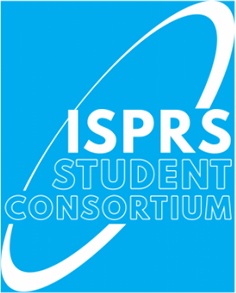The ISPRS SC Webinar Series
ISPRS WG III/3 (Active Microwave Remote Sensing) Webinar Series

This webinar is the part of the webinar series organised by the ISPRS WG III/3 (Active Microwave Remote Sensing) with the technical support of the ISPRS Student Consortium (ISPRS SC).It is organised on the second Wednesday of every months.
Program Details:
Duration: 1 hour: 40-45 minutes of lecture and 15-20 minutes for discussion.
Moderator: Prof Junichi Susaki
Title: What SAR can learn from optical data
Abstract:
Synthetic Aperture Radar (SAR) data presents unparalleled advantages in reliability and the distinctiveness of its measurements, making it invaluable for various remote sensing applications. In contrast, optical data often provides richer information and is generally more straightforward to analyze, yet its utility can be hindered by factors such as cloud cover or insufficient lighting. This presentation explores several innovative variations on a common theme: harnessing deep learning techniques that utilize SAR data for inference while incorporating aligned optical data during training to develop models that are both more robust and highly accurate.
Speaker's Bio:
Ronny Hänsch received the Diploma in computer science and the Ph.D. degree from the TU Berlin, Berlin, Germany, in 2007 and 2014, respectively. He is a scientist at the Microwave and Radar Institute of the German Aerospace Center (DLR) where he leads the Machine Learning Team in the Signal Processing Group of the SAR Technology Department. He served as chair of the GRSS Image Analysis and Data Fusion (IADF) technical committee and editor of the GRSS eNewsletter. Currently, he is co-chair of the ISPRS working group on Image Orientation and Sensor Fusion, editor in chief of the Geoscience and Remote Sensing Letters, co-organizer of the CVPR Workshop EarthVision (2017-2025) and the IGARSS Tutorial on Machine Learning in Remote Sensing (2017-2024). He has extensive experience in organizing remote sensing community competitions, serves as the GRSS representative within SpaceNet, and was the technical lead of the SpaceNet 8 Challenge.

